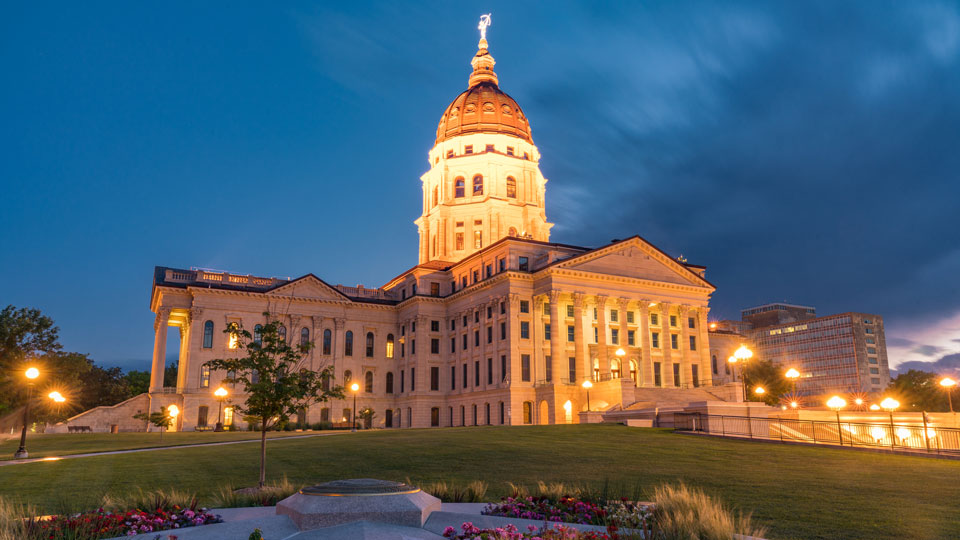
We’ve reached what is known as turn around week at the Kansas Capitol. It’s the week in which bills are supposed to be out of one chamber unless they have been made exempt. This means legislators are on the floor for hours at a time, trying to get bills passed out of their chamber.
We’ve been talking a lot about our number one goal for the rest of session, The Fairness in Women’s Sports Act, but I wanted to let you know about some of the other things that are on the move in the legislature.
Educational Freedom
Expanding opportunities and access for families has been a top priority in the Capitol this year. The pandemic made it painfully clear that families need options, especially for those in the lowest socio-economic groups in our society.
The pandemic only exacerbated problems for kids who were already struggling in school. In both the House and Senate, bills have been introduced that will provide options for low-income families and for at-risk kids. Already the Senate has passed a bill expanding the low-income tax credit scholarship for kids. This program is currently helping over 500 students receive a better education.
Last week in the House, a bill was introduced that includes the low-income tax credit scholarship and an education savings account (ESA) for at-risk children. ESAs empower parents to use their tax dollars to educate their children in the way that is best suited for their child. Because not every family has the resources to make this choice for struggling children, ESAs empower parents to be able to take these steps. This particular ESA is crafted to help children who are most at risk.
The Senate also considered a bill known as the Back to School Act which would require that students be given an in-person option by the end of the month. As testimony on this bill has shown, many kids are struggling with virtual learning and need access to an actual teacher. A one-size-fits-all approach has never worked for education, and it’s not working now.
Emergency Powers Bill
The Kansas Emergency Management Act (KEMA) has been a hot topic since last March. This is the area of state law that allows the Governor to make emergency declarations. While the legislature has discussed re-authorizing the state of emergency to control the Governor’s powers for the COVID-19 pandemic several times, both Chambers are now discussing how to re-write KEMA for future emergencies.
Twelve months into this, we are all looking forward to life returning to a least a semblance of normal. But even as we prepare for the current emergency declaration to end on March 31st, we must learn from the last year and figure out a way to ensure our laws are flexible enough to allow the governor and the legislature (present and future) the room to respond appropriately while not over-ruling individual liberties. Striking this balance is even more difficult when an emergency seemingly goes on endlessly.
The current bills that the House and Senate are working on to fix KEMA, while not perfect, have many good provisions to protect our God-given freedoms. We have worked with stakeholders to ensure that there are checks on the governor’s power and that businesses and religious freedom are protected in the bill. Another important issue is ensuring that the abortion industry is not allowed to remain open while businesses, churches, and other components of our society are shut down. The House and Senate are now in discussions about how to merge their two different bills.
Bills of Concern
Two bills that we are concerned about are the sports wagering bill and a bill to legalize medical marijuana. The widespread use of gambling and marijuana have detrimental impacts on families. While the bills presented to the legislature currently attempt to lessen these impacts, they both open the door even more to both of these harmful industries.
Regarding sports wagering, we are opposed to the expansion of gambling because it preys on the poor, essentially becomes a regressive tax, and causes families to remain impoverished unnecessarily.
We recognize that medical marijuana is slightly different than recreational marijuana, but it has been shown countless times across the nation to be a first step for the industry to force its way into the state with disastrous results. We do not want to see the big marijuana industry wreck our society like we have seen in Colorado and Washington.
Pray
One final note, we are half-way through a 90-day session. The legislators are tired. They have put in many long hours and dealt with a multitude of different topics. And especially this session – they are increasingly isolated since it is harder to get into the Capitol because of COVID protocols. Whether you agree with your legislators on policy, I encourage you to pray for your legislators by name. Pray for wisdom, pray for perseverance, and pray that they will stand for good and reject evil.
For families,

Brittany Jones, Esq
Director of Advocacy